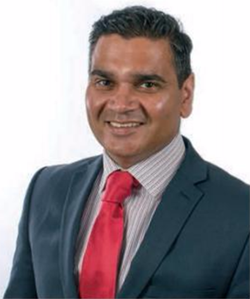About
Mr Sameer Singh qualified from Guys and St Thomas Medical School in 1995. He completed his basic surgical training in London and was appointed to the St George’s Hospital orthopaedic rotation in 2001. In 2006 Mr Singh was appointed as Fellow to the Liverpool Upper Limb Unit, gaining expertise in shoulder, elbow and hand disorders. He was appointed Visiting Fellow to the Adidas Sports Medicine Centre, New Zealand and the Adelaide Sports Medicine Centre in 2007, concentrating on sports injuries and the treatment of elite athletes.
Mr Singh’s elective practice concentrates exclusively on shoulder, elbow and hand disorders. He is trained to perform ultrasound scans of the shoulder and provides a one stop shoulder service for common shoulder disorders as well as general trauma and complex upper limb trauma. He is faculty member for the Advanced Arthroscopic Shoulder Course in Liverpool, where he trains other surgeons on new techniques and stays updated with new and developing procedures. Mr Singh is also a faculty member for the Royal College of Surgeons, training surgeons in basic surgical skills.
Mr Singh tailors treatments to suit individual patients and uses advanced arthroscopic techniques and minimally invasive methods. He works in conjunction with physiotherapists to maximise non‐operative treatment of upper limb disorders and to make sure patients receive the appropriate rehabilitation after surgery. He utilises accelerated rehabilitation techniques to promote faster recovery and reduced time off work.

